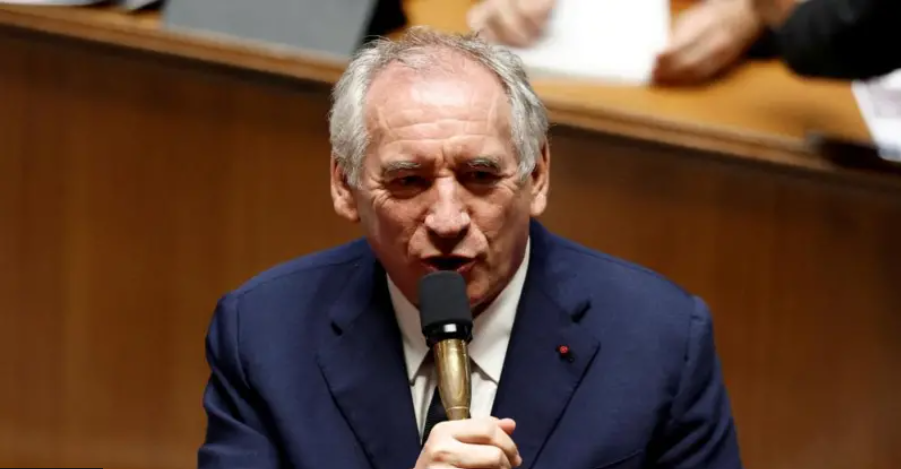

Prime Minister François Bayrou's brief tenure at the head of
the French government came to a dramatic end on September 9, 2025, when he
submitted his resignation to President Emmanuel Macron.
Bayrou’s time in office lasted just nine months, a period
marked by intense political turmoil and a profound fiscal crisis.
His departure followed a crushing no-confidence vote in the
National Assembly, a decisive defeat that had taken place just a day earlier.
The final vote tally was 364 to 194, a stark rejection of
his government and its policies.
His appointment on December 13, 2024, was viewed as a
strategic manoeuvre by President Macron, who was seeking a stable figure to lead
a deeply fractured government.
Bayrou was the fourth individual to hold the prime
minister's office in a single year, a historical record for the Fifth Republic
and a clear sign of unprecedented political instability.
He was tasked with the unenviable challenge of governing
without a parliamentary majority, a consequence of Macron's ill-fated snap
election in 2024.
François Bayrou’s path to the highest office was a long and
winding one, beginning in the French countryside.
He was born on May 25, 1951, in the small village of
Bordères, nestled in the Pyrénées-Atlantiques region.
His upbringing was modest; his father, Calixte Bayrou, was a
farmer who also served as the village mayor from 1947 to 1953.
As a youth, he developed a stutter that required seven years of speech therapy.
Despite this challenge, he was a dedicated student. He
studied classical literature at university, obtaining the prestigious agrégation—the
highest academic qualification for French high school teachers—in 1974 at the
age of 23.
Around this same time, his father was killed in a tractor
accident, a personal tragedy that underscored his connection to his rural
roots.
Before entering politics, he worked as a history teacher, a
profession that aligns with his well-documented interest in French history; he
has written several books on the subject, including a biography of King Henry
IV.
Bayrou’s political journey began in 1974 when he joined the
Democratic Centre, an affiliation that would shape his identity as a centrist.
His rise through the ranks was steady. He was elected to the
General Council of the Pyrénées-Atlantiques in 1982 and the French National
Assembly four years later.
Bayrou cemented his reputation as a formidable political
figure during his time as Minister of National Education, a post he held from
1993 to 1997 across three successive governments.
Following this role, he assumed the presidency of the Union
for French Democracy (UDF) in 1998, a party he transformed from a loose
confederation into a single, unified entity.
He launched three campaigns for the French presidency in
2002, 2007, and 2012. His 2007 bid was his most successful, where he captured
18.57% of the first-round vote, a remarkable performance that disrupted the
traditional "Sarko-Ségo" narrative of the election.
After this defeat, Bayrou acted to create his own party, the
Democratic Movement (MoDem), in 2007.
This move was prompted by the defection of many UDF members
who chose to ally with Nicolas Sarkozy’s UMP.
The creation of MoDem solidified his identity as a leader
committed to an independent centrist path, a clear break from the established
political alliances.
However, his eventual path to power as Prime Minister would
require the very compromises he had long resisted.
The government he led was a minority coalition of parties
from the center and the traditional right, a fragile arrangement that
ultimately proved unsustainable.
A pivotal moment in Bayrou's long career came in 2017, when
he made a choice that altered the course of French politics. Instead of
mounting a fourth presidential campaign, he chose to endorse Emmanuel Macron, a
rising star of the centrist movement.
Bayrou described this alliance as an "exceptional
response" to a France he saw as being at extreme risk. The political
partnership proved to be a critical factor in Macron's victory.
In recognition of his support, Macron appointed Bayrou as
Minister of Justice in his first government.
However, this appointment was short-lived.
Bayrou resigned
just 35 days later, amidst an investigation into allegations of fraudulent
employment of parliamentary assistants within his MoDem party. He was
ultimately cleared of these accusations in 2024.
Bayrou's appointment as Prime Minister on December 13, 2024,
was a desperate attempt to bring stability to France after the previous
government, led by Michel Barnier, had been toppled by a no-confidence vote.
Bayrou was chosen to navigate a deeply fragmented National
Assembly, where no single party commanded a majority.
His tenure, however, quickly became defined by the nation's
severe fiscal challenges.
France faced an acute financial crisis, with public debt at
114% of GDP and a budget deficit of 5.8%, far exceeding the European Union’s 3%
limit.
To address this, Bayrou proposed a sweeping austerity budget
aimed at achieving €44 billion in savings. His plan included controversial
measures such as freezing welfare spending and scrapping two public holidays.
Bayrou framed his approach as a "moment of truth,"
warning that inaction would saddle younger generations with crippling debt.
He decided to call a confidence vote on his budget, a move
that critics called a "staggering political miscalculation".
Instead of negotiating with opposition parties, he gambled that he could force the issue, believing his direct appeal would expose the dysfunction of a gridlocked parliament.
This strategy, however, failed
spectacularly. It served to unite his political opponents—from the far right to
the left-wing alliance—against him, leading directly to the decisive
no-confidence vote that ended his premiership.
His ousting was the third collapse of a government in just
14 months, a direct consequence of the hung parliament that emerged from
Macron’s 2024 snap election.
The constitutional deadlock and an inability to pass a
budget have become the hallmarks of this period.







![[PHOTOS] Ruto joins State House families in worship](/_next/image?url=https%3A%2F%2Fcdn.radioafrica.digital%2Fimage%2F2025%2F09%2Fa6dc59b3-4273-4667-bd88-1fffcb5c00d3.jpg&w=3840&q=100)





